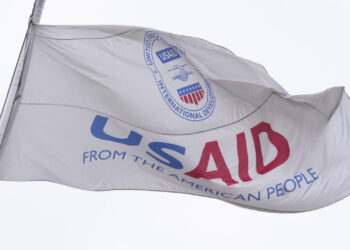A new study by researchers at Bahir Dar University in Ethiopia reveals that up to 22.6%-over one-fifth-of medicines in Africa are either fake or substandard, posing a significant risk to the continent’s fragile public health system.
The study, published on the United States National Library of Medicine website, stated that over a third (34.6%) of medicines on the continent are unregistered, with antibiotics accounting for 44% of these unregistered drugs.
In the study, researchers reviewed 27 studies and discovered that out of 7,508 medicine samples analyzed, 1,639 failed at least one quality test, confirming them to be substandard or falsified.
The study attributed the prevalence of fake and substandard medicines in Africa to poor market regulatory oversight, free trade zones, inadequate registration, high demand, and substandard importation practices.
The report states, “The overall estimated prevalence of substandard/falsified medicines in Africa was 22.6% (1718/7592). The average prevalence of unregistered medicines was 34.6% (108/312). Antibiotics, antimalarial, and antihypertensive medicines accounted for 44.6% (712/1596), 15.6% (530/3530), 16.3% (249/1530), and 16.3% (249/1530), respectively. Approximately 60.7% (91/150) were antihelmintic and antiprotozoal medicines. Poor market regulatory permission, Free trade zones, poor registration, high demand, and poor importation standards contribute to the prevalence of these problems.”
According to the study, Kenya had the highest percentage of fake and substandard unregistered antibiotics, and antimalarial drugs at 17% followed by Malawi at 10.7%.
Similar studies
The study aligns with a 2017 World Health Organisation (WHO) study, which estimated that one in 10 medical products in developing countries are substandard or falsified. According to the report, 42% of substandard and falsified medicine reports come from Africa, 21% from the Americas, and 21% from Europe.
Based on estimates of 10% substandard and falsified medicines, a modelling exercise by the University of Edinburgh estimates that 72,000 to 169,000 children may die each year from pneumonia due to substandard and falsified antibiotics.
Another model by the London School of Hygiene and Tropical Medicine estimates that substandard and falsified antimalarials could cause an additional 116,000 (64,000 – 158,000) deaths from malaria annually in sub-Saharan Africa, costing patients and health providers US$38.5 million (21.4 million – 52.4 million) for further care due to treatment failures.
Prevalence of substandard and fake drugs in Nigeria
In 2019, the Director-General of the National Agency for Food and Drug Administration and Control (NAFDAC), Prof. Mojisola Adeyeye stated that the prevalence of fake and substandard medicines in Nigeria is 16% with plans to reduce that below the global average of 10% by 2025.
According to NAFDAC as reported by the Nigeria Economic Summit Group (NESG) an estimated 70% of drugs in Nigeria are imported giving a leeway for fake and substandard drugs being imported into the country.
Earlier this year, the NAFDAC boss stated that about 50% of imported pharmaceutical product certificates are fake despite efforts to ensure product quality. The Certificate of Pharmaceutical Product (CPP), issued in the format recommended by the World Health Organisation (WHO), guarantees the quality of pharmaceutical products and the integrity of the exporting country.
Last year, the agency launched a database containing over 6400 registered pharmaceutical products for the public to verify the authenticity of drugs online.
Rising drug prices in Nigeria
The 28-year high inflation and over 100% devaluation of the naira have seen the cost of drugs increase by over 100% in the last one year. This has led to the exit of major pharmaceutical multinationals operating in the country.
An investigation by Nairametrics reveals that the cost of painkillers has soared by over 200% as of April 2024. Following the exit of GSK in August 2023, the prices of antibiotics, asthma inhalers and painkillers- major drugs produced by the pharmaceutical giant soared by over 1000%.
To stem the rising tide of drug prices in the country, President Tinubu last month signed an Executive Order (EO) introducing zero tariffs, excise duties and Value Added Tax (VAT) on import of pharmaceutical products including specialised machinery, equipment and pharmaceutical raw materials in a bid to boost local production.
The recent surge in drug prices, combined with low health insurance coverage and stagnant household incomes, is likely to drive many Nigerians to seek more affordable alternatives, potentially increasing the risk of encountering counterfeit medications. Over the past year, the National Agency for Food and Drug Administration and Control (NAFDAC) has reported multiple seizures of counterfeit and substandard medicines across the country, amounting to billions of Naira.
Nigeria imports most of its drugs from India whose pharmaceutical industry was valued at $42 billion in 2021 and projected to reach $65 billion in 2024.
A 2017 McKinsey report puts the size of Nigeria’s local pharmaceutical industry at $607 million projecting it to grow significantly reaching $3.6 billion by 2026. Nigerian pharmaceutical manufacturers produce a variety of products, including liquid preparations, tablets, capsules, ointments, lotions, creams, and ophthalmic preparations.





















